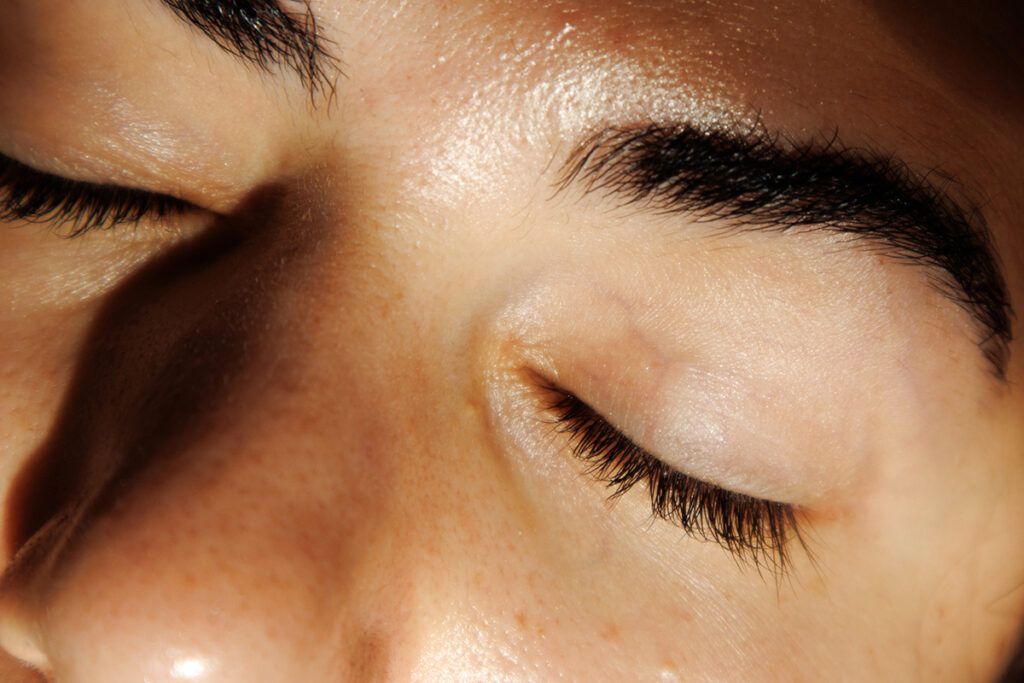If you notice you’re losing more eyelashes than usual, it may be due to several causes. For example, it could be down to vitamin or nutrient deficiencies, an underlying medical condition, or a reaction after using certain types of cosmetics. Sometimes, people may even pull their eyelashes out without realizing it.
Knowing more about the potential reasons for losing eyelashes can help you know when to speak with a doctor about the treatments available to help stop and revert it.
What causes losing eyelashes?

People may lose eyelashes due to several causes. Sometimes, a person may have a behavioral disorder called trichotillomania. This causes them to pull their eyelashes, and the condition may have a connection with anxiety or other mental health conditions.
However, irritation due to cosmetic use, vitamin deficiencies, and underlying health conditions can also lead to eyelash loss.
Vitamin deficiency
Nutrient and vitamin deficiencies may cause you to lose eyelashes. If you have vitamin C deficiency, you may develop scurvy, a disease that can cause various symptoms, including corkscrew-like, bent, and fractured hair. This might also affect your eyelashes.
A 2022 review also found a link between zinc deficiency and the onset of eyebrow and eyelash alopecia. This condition causes your immune system to attack your hair follicles, leading to hair loss.
Underlying medical conditions
If you notice a sudden change in your eyelashes, this may be a symptom of an underlying condition. Several conditions are associated with eyelash loss, including:
- Blepharitis: This occurs when the oil glands in the eyelids become clogged, causing chronic inflammation and problems with the eyelash follicles. If you have blepharitis, you may also experience redness or swelling in your eyelids with a burning sensation or itchiness.
- Alopecia: This is an autoimmune disorder that triggers your immune system to attack your hair follicles, causing hair to fall out in patches. Alopecia can occur anywhere, including the eyelash follicles. There is no cure, but some treatment options can help manage its symptoms. The hair can sometimes grow back.
- Thyroid disorders: The thyroid is a gland that controls your hormone levels. If you have a thyroid disorder, it can cause hormone imbalances. Having too few thyroid hormones (hypothyroidism) or having too many of them (hyperthyroidism) can trigger hair and lash loss. If you have a thyroid disorder, you may also experience other symptoms, such as changes in blood pressure, heart rate, and body weight.
- Skin cancer: About 5–10% of skin cancer cases occur on the eyelids. Squamous cell or basal cell skin cancers in the eyelid can lead to losing all or some of your eyelashes.
Other potential causes of eyelash loss may include:
- hormonal changes, such as those linked to menopause
- side effects of certain medications
- chronic stress
- side effects of cancer treatment, such as radiation therapy or chemotherapy
- having a chronic inflammatory disease, including:
- rheumatoid arthritis
- lupus
Irritation
Certain eye makeup products and cosmetics may cause eyelash loss. Using and removing lash extensions, wearing eye makeup for a long time, forgetting to remove it, or using heated or nonheated eyelash curlers can speed up eyelash shedding and harm the health of your lashes.
You may also experience eyelash loss if you develop an allergic reaction after using mascara or applying certain types of glue at the base of your eyelashes when using extensions.
When should you seek help?
It is natural to lose some eyelashes every day as part of their life cycle. Eyelashes fall out as new ones grow and replace them. However, if you notice any sudden changes in your lashes or lose a lot all at once, it could be a symptom of an underlying health condition.
Speak with a doctor as soon as possible if you experience any of the following:
- hair loss also happening on your scalp or eyebrows
- vision changes or vision loss
- a sensation of pressure around the eyes
- skin changes, such as scaling, itching, or discoloration
- eyelash loss occurring on both lids
Doctors can perform tests to diagnose the underlying condition causing your symptoms and then recommend the most appropriate treatment. They may also refer you to an ophthalmologist or a dermatologist, depending on what health condition they suspect you may have.
Need a prescription or refill for hair loss medication? You can get discreet and expert on-demand care in as little as 15 minutes through Optum Perks with no video or appointment required. For $25, answer a few questions online and get a treatment plan from a board certified healthcare professional. Get started here.
